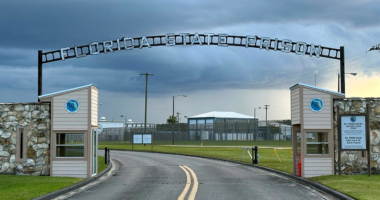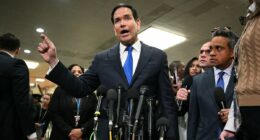Share this @internewscast.com

This week, the spotlight will undoubtedly be on dissecting the final poll results of the mayoral race: How did Zohran Mamdani emerge victorious? What implications does this hold for the city’s political landscape?
However, there are far more critical figures that demand the attention of Mamdani and New Yorkers alike. These figures will shape the future trajectory of New York City for years to come, with six key numbers standing out.
3%. The city’s “headline inflation” surpasses the national urban average and has consistently outpaced much of the country for years. This ongoing trend has driven away numerous lower- and middle-income residents and hampers the city’s ability to attract young talent and businesses seeking to avoid steep costs.
In response, Mayor Adams and the City Council have significantly boosted subsidies and programs to mitigate the affordability crisis. Yet, more robust measures, particularly in housing and child care, are imperative. The new administration faces a daunting challenge in securing the necessary funding.
50,000. To address living costs, expanding housing availability is crucial. The city needs to construct or preserve 50,000 units annually over the next decade to make meaningful progress in the affordability struggle.
Despite substantial recent investments in new housing projects and accompanying subsidies, as well as groundbreaking initiatives like “City of Yes,” and recent ballot measures I was proud to support, these efforts fall short. To fully leverage the city’s new tools for housing development, additional funding from both capital and expense budgets—and substantial support from Albany—will be necessary.
$13.9 billion. The city’s multi-year deficit number is massive and likely to grow. There is no more hiding spending in “out years.” The bill will come due for the new mayor, whether or not he resolves conflicts with Washington and Albany over their contributions. That means higher taxes, less spending in some areas, or both.
100,000. That’s approximately the number of major felony offenses a year that New Yorkers will tolerate before they think their city is unsafe, according to historic polling. We last reached this mark in 2020 following several decades of grueling work to drive crime down.
This year will end with approximately 120,000 felonies from the seven major crime categories, which is a meaningful reversal from the spiking rate Eric Adams inherited. Adams and NYPD Commissioner Jessica Tisch now have murders and shootings near record lows as well. That is a big reason why most surveys now have affordability as the No, 1 issue, not public safety. But that trend must continue or the fear of crime will overwhelm public life once again.
1 million. The number of students in public schools has ticked back up to just above 900,000 after a huge decrease during COVID, but is off its high of more than 1 million. That is encouraging but it also means expectations for improvement will be higher and the modest recent improvements to test scores must continue or accelerate.
Yet few New Yorkers are likely aware of Mamdani’s intention to fundamentally change the leadership structure of schools by moving away from the mayoral control model. That change will have potentially huge consequences.
50%. The most important number: Mamdani’s approval rating. Whether or not it is above water by the time the rubber meets the road on his agenda could determine his ability to deliver. Recent surveys have had him just over or just under 50% “favorability.” For comparison, Adams had a low-60s approval rating when he took office — and he still faced tremendous political headwinds in his first six months.
The votes on Election Day were less about the issues themselves and more about who voters trusted to tackle them. But New Yorkers are a famously impatient bunch. Any new mayor is expected to deliver immediately. This one has inherited some numbers moving in the right direction and some adding up to serious trouble.
The incoming mayor announced his transition committee the day after the election. How they and our new city leadership navigate these issues separately and together at this pivotal moment will determine our collective future for years to come.
Thies is a Democratic consultant and co-founder of Pythia Public Affairs.

















